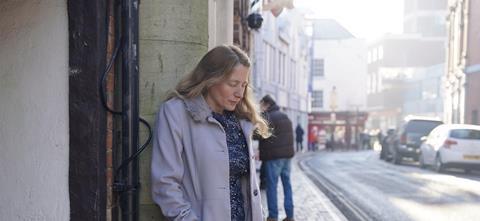Amendments to the Public Order Bill, which criminalise silent prayer within 150m of any abortion facility in England and Wales, have now been passed into UK law. Ian Paisley MP says genuine tolerance has been trumped by cynical opportunists

Daniel was the biblical character famously arrested and thrown into the lion’s den. What is less well remembered is the reason for his ordeal. His crime? Contravening a sinister new law that outlawed his right to private prayer and forced sole homage to the political regime of the day.
This illiberal edict, cynically constructed by a group of opportunist politicians for a purpose never intended by the king who signed it, led to a death warrant against a peaceful, law-abiding man.
Private prayers
As a society, we are, of course, beyond such religious intolerance nowadays. Or so one might have thought.
In recent months, local ‘edicts’ known as Public Space Protection Orders (PSPOs) - which were set up originally mainly to replace dog control notices - have been employed to criminalise the private prayers of peaceful, law-abiding citizens.
These include a retired military veteran and a Roman Catholic priest. For what grave wrongdoing have these unlikely and supposed threats to civil peace been arrested?
Praying silently near an abortion clinic.
🚨BREAKING: Isabel has been arrested, AGAIN, for THINKING.
— ADF UK (@ADF_UK) March 6, 2023
MPs vote TOMORROW on banning silent prayer near all abortion facilities in🏴&🏴
"You've said you're engaging in prayer, which is the offense."
"Silent prayer."
"You were still engaging in prayer, which is the offense." pic.twitter.com/AId3OguiXz
Chillingly, this draconian action cannot be attributed to overzealous police misinterpreting local regulations. The wording of the PSPOs issued by Birmingham and Bournemouth councils, which police have sometimes had to enforce almost apologetically, explicitly and deliberately name prayer as a forbidden activity.
Nor is this intolerance merely a localised problem. Before Christmas, the House of Commons approved an amendment to the government’s Public Order Bill that would criminalise peaceful expressions of conscience within 150 metres of any abortion facility nationwide.
Cynical manipulation
This amendment, cynically constructed by a group of opportunist politicians to a bill intended to minimise the disruption created by groups like Extinction Rebellion, echoes these PSPOs that ban silent prayer.
The beginning of the book of Daniel describes how Daniel and his friends, forcibly exiled in a foreign land, had been indoctrinated in the language and culture of the Babylonians. Within a few chapters, this compelled assimilation had led to dissenters being thrown to the lions.
In recent decades, a new language and culture, foreign to the principles and freedoms that have characterised our shared values for generations, have been thrust upon us. They are policed with the zeal of the Babylonian establishment.
The language contains familiar words, but with new, enforced meanings: we are under pressure to assimilate new definitions of concepts like ‘tolerance’, ‘diversity’ and ‘progressiveness’ when it comes to free speech and dissenting opinions.
King Darius recognises the intolerance thrust on him and yet is seemingly unable to resist
Alongside such examples of linguistic manipulation, we can now add the phrase ‘safe access zone’ as a euphemism for a censorship zone. For that is what is being proposed by Clause 10 of the Public Order Bill, which has now been passed into UK law.
A weak freedom
This clause would see an individual criminalised for “influencing any person’s decision to access” abortion services within 150 metres of any such facility. The word ‘influencing’ is far too broad and could theoretically capture a whole range of activities - including silent prayer. Little evidence has been produced to justify such censorship. Laws already exist to criminalise the rare incidents of actual harassment that may take place within reach of abortion clinics.
In recent decades, a new language and culture has been thrust upon us
On the other hand, those who refuse to pay homage to 21st century fashionable thought will likely be banned not only from private prayer but also from offering practical support and advice to women who may be under coercion to seek an abortion, or who may wish to continue their pregnancy but lack the means to support a child.
The tragedy of the account of Daniel’s descent into the lion’s den is that it takes place at the hands of the weak King Darius. He recognises the intolerance thrust on him by his courtiers and, yet, is seemingly unable to resist the exploitation of his own laws.
In passing this law, this government has failed to stand up for freedom and genuine tolerance. Instead, it has shown similar weakness, wringing its hands and allowing censorship to pass onto the statute book.



































1 Reader's comment